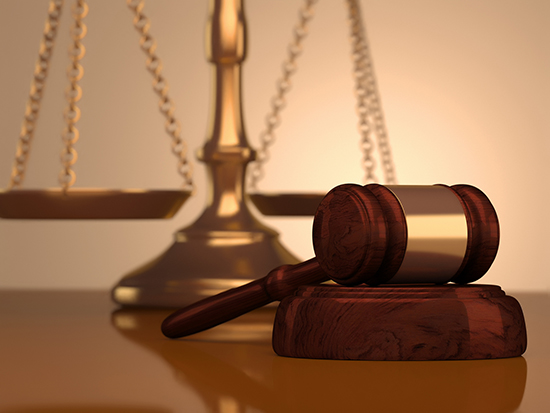
On November 6th, the Supreme Court will hear oral argument in a case involving different prayer at municipal public meetings. The prayer being contested is not a “set” prayer but one that is rotated among different Churches and religions in the municipality. A decision is expected in June.
This case directly pits Secularity against constitutional religion, and in this article I will briefly sketch we all should pray for prayer in the Court’s eventual decision.
It is increasingly common today in America to hear that the biggest threat to the free exercise of religion as enshrined in our Constitution is the secular disrespect for religion embedded in the mind set of many Federal Judges. And that the problem of our irreligious “Article III” Judges is made worse by their reliance on unaccountable, utterly green and unwise law clerks, a reliance that all too frequently results in constitutionally illegitimate clerk-made law.
What is Secularity? Why Does It Matter?
In sounding a constitutional alarm, I want to be careful not to get ahead of myself. The prior questions here are, “What is Secularity and why is it important for me to recognize and oppose it?”
To answer these questions it is important at the outset to distinguish Secularity as a term used to indicate a method of believing that seeks to banish God from all public spaces. Secularity is surreptitiously organized to undermine and displace religious influences from public policy, from our culture, and from our lives as citizens. Secularity in this constitutional sense is distinct from secularism, a word with many meanings not all of which are bad.
One important distinction between Secularity from secularism to be aware of is that Secularity in its present American disguise represents a structured way of life that is itself functioning as if a religion. When Secularity triumphs over religion at the Supreme Court in a decision, it is as if the Justices voting for that triumph must look into the Sun -into the Constitution-and pretend not to see it.
To briefly summarize Secularity as a constitutional evil, a brief list of only five points should suffice.
1. Secularity undermines claims supportive of religion in public places, and has often succeeded in evicting God from public places, thereby denying the right of the free exercise of religion;
2. Secularity actively contests any belief in a divine origin as the basis or grounds for our ethics, values, morality and cooperation;
3. Secularity intellectually but irrationally opposes religious beliefs despite the fact that such religious beliefs are already in place under the Constitution within the three branches of our federal government as well as in state and local governments;
4. Secularity is intolerant towards the constitutional protection of the free exercise of religion. In fact it may be fairly said that at times the United States Supreme Court has gone so far as to effectively amend by interpretation the Constitution, erasing the First Amendment’s Free Exercise of Religion Clause from the Constitutional text; and
5. Secularity works with stealth through our culture’s elite media, entertainment and academic powers seeking to align our nation’s religious and cultural practices in sync with that same elite amoral guidance as held by too many Judges and their law clerks. For example, see https://guardmarriage.com/marriage-politics/secular-rights-and-religious-rights .
Several Illustrative Examples Reveal an Urgent Need for Action
Secularity is highly adaptive in asserting its influence. As some sociologists of religion have increasingly noted, for America’s cultural elites, Secularity has evolved into our new national surrogate religion with status and money as its idols. It is no surprise then that in this “religion,” the old adage that “Truth makes law” has been changed to “Power makes law.”
Secularity has become a powerful cultural force. It has been suggested that Secularity is able to promote its values because of the short attention spans formed by instant Internet communication, on the one hand, as well as by the book-length attention spans of “high culture” elites, on the other hand. In these and other ways, Secularity has the momentum to continue to damage our constitutional jurisprudence, our institutions of government, and our social morality-unless we start to voice objections.
Secularity is also reshaping our social etiquette. In the present age it is increasingly expected, for reasons of civility that mention of one’s religious commitments not be made because to do so would be impolite (“Keep it to yourself”!-that’s the rule of etiquette demanded by Secularity, as one scholar has astutely noted.)
Secularity is also actively engaged in the transvaluation of the values of the traditional family, turning our family values upside down. In fact, the term “family” is being redefined so elastically these days from what it used to mean that our dictionaries can barely keep pace in updating the word’s meaning.
Secularity has even gained influence within some of America’s religions of relevance, a trend that can be noticed by how providence, an idea that is part of the core meaning of our national Thanksgiving holiday, has begun to fade from national discourse.
In short, Secularity is turning America into the land of the self-absorbed and the home of the morally lame. Challenges to test and strengthen one’s character are quickly reduced to a medical issue and a script.
Because Secularity injures individual character, the question, “Should I choose the moral choice over the immoral or unethical action?” is now too frequently rephrased in our brains as if the question were instead, “Which action will most gratify me right now?” Patience, courtesy and most importantly, cooperation are disappearing. And the reason for this is that secular values are ungrounded ethically. They can give us no rule of decision why an individual’s self-interest should be sacrificed in order to choose instead an altruistic deed. As a result, our society is experiencing a drop in our cooperating one with another.
It is partly because of such bad examples that leading philosophical and religious scholars are strictly scrutinizing the Secularity running rampant in our society. For example, the philosopher Charles Taylor (in A Secular Age), the theologian John Milbank (in Theology and Social Theory), and the Princeton Professor of Jurisprudence, Hon. Robert P. George (Conscience and Its Enemies, Confronting the Dogmas of Liberal Secularism) are arguing for the national return of religious values and conscience.
Conclusion
At present, the assimilation of religious values into secular values appears to be at a “tipping point.”
Secularity, if allowed to continue as the social and judicial juggernaut it has been, may soon constitute the core values within many American lifestyles.
But there is hope.
First, until recently Secularity just skated by without being subject to critical deliberation. That has now changed. Sensitive souls with sharp minds have begun to criticize Secularity effectively. That far too many secular victories have occurred simply by default may start to be a thing of the past.
The second reason for hope is that the prayer case, Town of Greece v. Galloway, scheduled for oral argument on November 6th before the U.S. Supreme Court, might well prove a defeat for Secularity. And while unfashionable by the lights of Secularity, prayer for the Court regarding that case is timely-and given my acquaintance with Meridian readers, I find hope in the Scripture that the prayers of the righteous availeth much.
2013: Ashby Douglas Boyle II


















David SkousenOctober 22, 2013
Excellent analysis. Society's general ignorance, and shallow understanding of moral principles has caused minimal push-back against the tide of darkness. I want to see a stronger LDS response. This article is that response. Will others step up to the plate?
Doug IndeapOctober 19, 2013
It is important to distinguish between the "public square" and "government" and between "individual" and "government" speech about religion. The constitutional principle of separation of church and state does not purge religion from the public square--far from it. Indeed, the First Amendment's "free exercise" clause assures that each individual is free to exercise and express his or her religious views--publicly as well as privately. The Amendment constrains only the government not to promote or otherwise take steps toward establishment of religion. As government can only act through the individuals comprising its ranks, when those individuals are performing their official duties (e.g., public school teachers instructing students in class), they effectively are the government and thus should conduct themselves in accordance with the First Amendment's constraints on government. When acting in their individual capacities, they are free to exercise their religions as they please. If their right to free exercise of religion extended even to their discharge of their official responsibilities, however, the First Amendment constraints on government establishment of religion would be eviscerated. While figuring out whether someone is speaking for the government in any particular circumstance may sometimes be difficult, making the distinction is critical. Confusion understandably arises because the constitutional principle of separation of church and state is sometimes equated with a widely supported political doctrine that goes by much the same name and generally calls for political dialogue to be conducted on grounds other than religion. The underlying reasons for that political doctrine are many, but three primary ones are that (1) it facilitates discussion amongst people of all beliefs by predicating discussion on grounds accessible to all and (2) it avoids, in some measure at least, putting our respective religious beliefs directly